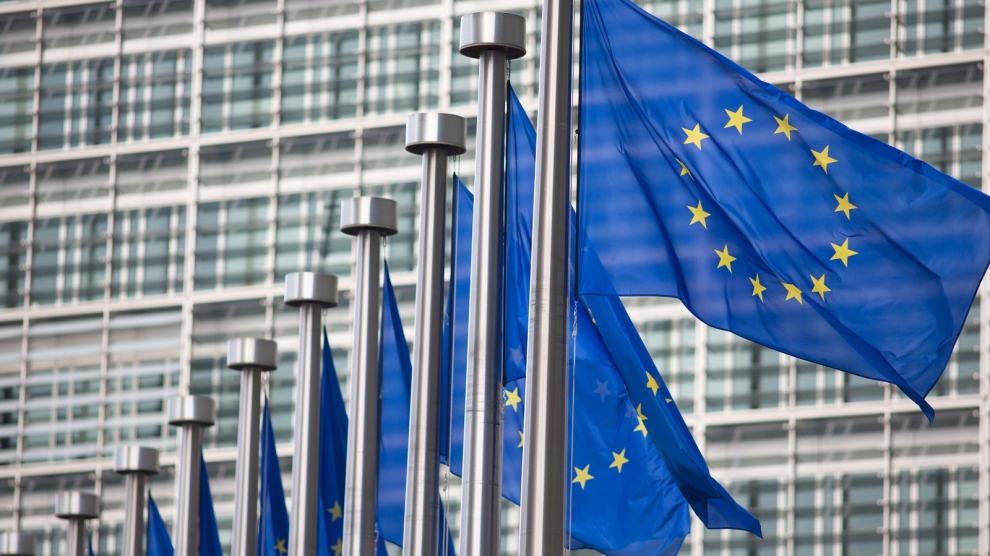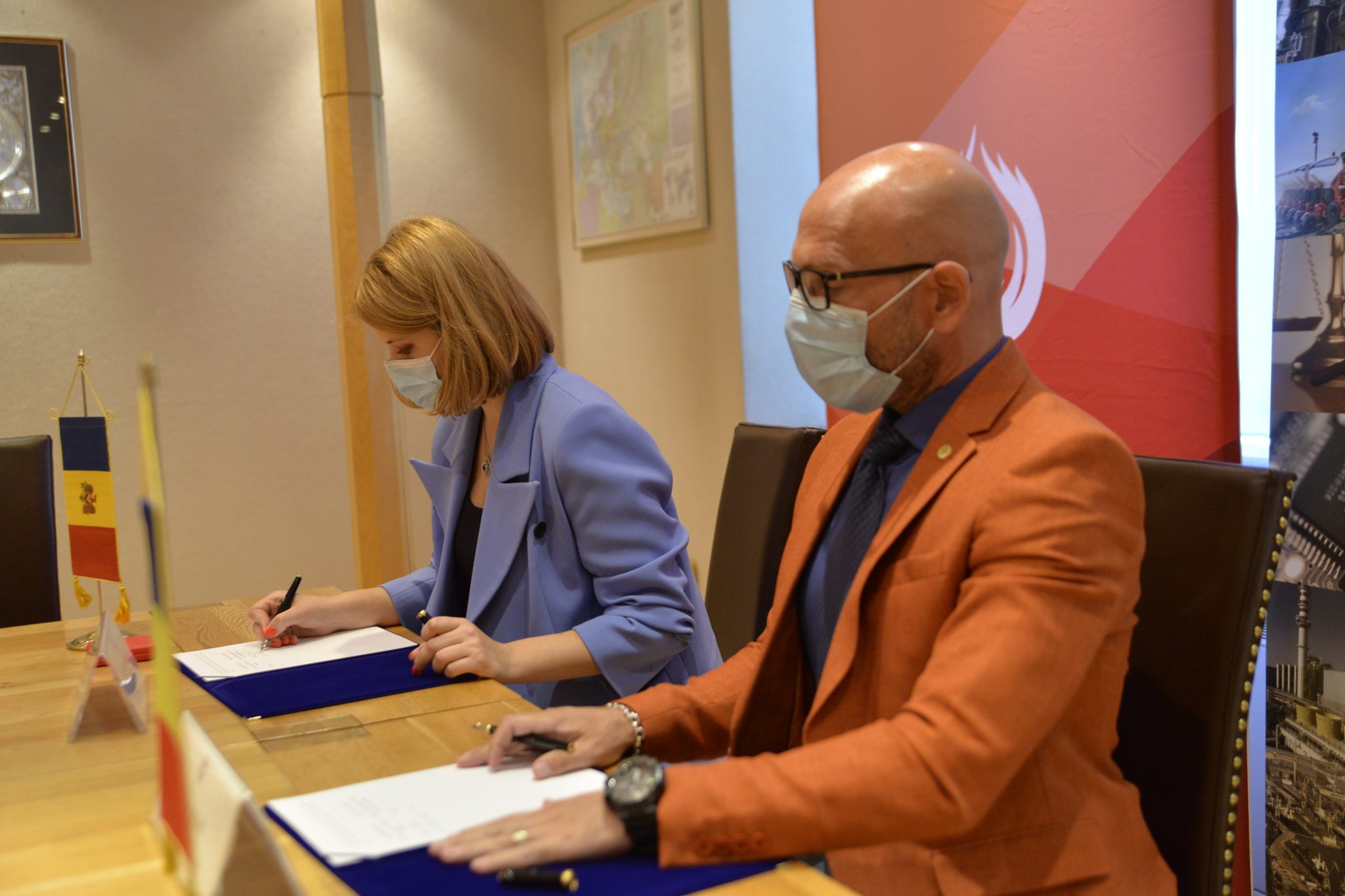Economy
Greece: Socialist government's budget deficit of 12.5% caused debt crisis
Reading Time: 3 minutesOn October 4, 2009, the Greek Socialist Party Pasok scored a large victory in early national elections. With a clear majority (160 out of 300 seats) in the Greek legislature, Pasok’s top candidate George Papandreou became prime minister. A few days later, the new government announced that the budget deficit would be at least 12.5 percent of GDP, double what the previous conservative government had predicted.
By Francois Lafond
The positive side of Greece’s economic troubles
On October 4, 2009, the Greek Socialist Party Pasok scored a large victory in early national elections. With a clear majority (160 out of 300 seats) in the Greek legislature, Pasok’s top candidate George Papandreou became prime minister. A few days later, the new government announced that the budget deficit would be at least 12.5 percent of GDP, double what the previous conservative government had predicted.
Things quickly went downhill from there. The markets, the rating agencies, and finally the European Commission all condemned Greece for tampering with public finance data. Even the government’s declaration that it intends to clean up its fiscal stables had a perverse effect: markets ignored a three-year plan introduced in January to reduce the deficit, including the launch of a new government bond with an attractive interest rate at 6.41 percent (10 years). Papandreou has a chance here to demonstrate that he is a statesman; but the job is a challenge too—not least because the exact amount of the country’s deficit remains unclear, and a sizable chunk of the Greek GDP is produced out of sight of the authorities (estimates of the illegal economy range between 10-20 percent of GDP).
Greece’s economy only constitutes a tiny fraction (2.5 percent) of the 16-member-Eurozone. But the Greek case raises important issues of responsibility and solidarity within the Eurozone. Moreover, other European countries are grappling with deficits as well as with the problem of pervasive tax evasion or do not respect the four Maastricht treaty criteria. If Greece were to default on its debt after all, that might spread panic to other European economies and continue to shake up the markets. So, calibrating the right response to the Greek crisis is crucial– not just for Greece, but for the European Union.
In mid-February, the European Union responded by giving Greece a one-month reprieve. The European Council and then the Eurozone finance ministers sternly told the Greek government to cut its budget deficit by four percentage points in 2010, and to stick to its austerity program. Additional steps demanded by the EU included a VAT increase, chopping bureaucracy, and reforms in the pension system. The EU’s counter-pledge of support remained vague in substance. But the 27 member states promised “determined and coordinated action, if needed, to safeguard financial stability in the euro area as a whole”—the first time such a strong political message was sent to global markets.
For the next month, Greece is obliged to give up part of its economic sovereignty. The Commission, the European Central Bank, and the other European member states will monitor Greece’s development carefully; if by mid-March the situation has not improved, the Eurozone partners can ask for more cuts.
It is no secret that the German Chancellor Angela Merkel resisted the deal fiercely. If Article 125 of the Lisbon Treaty forbids bailing out a country, article 122 allows the European Council “in a spirit of solidarity” to “take measures” to help a member state with severe economic difficulties. But Merkel and her advisors worry about running afoul of a recent constitutional court ruling that emphasized national sovereignty over economic policymaking, sharp criticism of Greece in public opinion polls, and—most of all—about setting a precedent for other countries.
All this has forced European leaders for the first time to think seriously about greater economic coordination. Might it be desirable, even necessary, to institute some form of European economic governance—despite the hope that the Lisbon Treaty would put an end to EU architectural reform for a while?
This would imply—at the very least—better coordination of national budget drafting processes, so as to avoid Greek-style surprises in the future. That would already go some way to limit free-riding by individual member states. But some European economic experts think much more is needed. For example, greater coordination of member states’ fiscal policy and stronger banking regulations. The EU’s large countries (Germany, France and Italy) will need to play more strictly by the existing common rules if they want all the Eurozone members to respect the Treaty, and accept greater control over their economies to bring them back into line. The European institutions (the Commission, the European Parliament and the ECB) will also need to upgrade their role in supervision and monitoring, but also in initiating proposals. But that would really be a new path for all the European economies, and not only the weakest ones.
—
Francois Lafond is the director of the German Marshall Fund’s office in Paris.
Economy
Moldova will receive a disbursement of 36 million euros as part of the the Economic Recovery Plan

This week, the European Commission approved the disbursement of 36 million euros in grant money for the Republic of Moldova. The announcement was made by Deputy Director-General for Neighbourhood Policy and Enlargement Negotiations at the European Commission, Katarina Mathernova, who paid an official visit to the Republic of Moldova between September 13-15, together with Managing Director for Russia, Eastern Partnership, Central Asia, Regional cooperation and OSCE, at the European External Action Service, Michael Siebert.
The EU officials had meetings with President Maia Sandu, Minister of Foreign Affairs and European Integration, Nicu Popescu, Speaker of Parliament, Igor Grosu, Prime Minister of the country, Natalia Gavrilita, as well as key representatives of Government, international financial institutions and the civil society, according to a press release issued by the Delegation of the European Union to the Republic of Moldova.
Beside such topics as the EU-Moldova relations and prospects, the priorities of the reform agenda of the new Moldovan Government, preparations for the Eastern Partnership Summit at the end of the year and the Transnistrian conflict settlement, the officials also discussed the EU assistance in support of reforms and the Economic Recovery Plan for Moldova, which was announced in June with a total EU support of 600 million euros over the next 3 years.
“The first measures under the Economic Recovery Plan will shortly materialize, with the expected disbursement of 36 million euros in grant money under budget support programmes to support the authorities’ efforts to fight against the consequences of the pandemic. Moldova can count on EU’s assistance on its path to reforms and to recovery, bringing tangible results to citizens,” Katarina Mathernova stated.
The plan is based on assistance provided by the European Union through various bilateral and regional instruments, aiming to mobilize the funds in the form of grants, loans, guarantees and macro-financial assistance.
“The Economic Recovery Plan for the Republic of Moldova involves much more, not just this financial support provided immediately. It must help digital transformation, strengthen infrastructure, energy efficiency, education and support small and medium-sized enterprises,” the EU official also said.
As Prime Minister Natalia Gavrilita informed, “The Economic Recovery Plan and the 5 flagship initiatives for Moldova in the Eastern Partnership will directly contribute to the reform and consolidation of institutions, stimulate long-term socio-economic development, bring direct benefits to citizens, and unleash new economic opportunities through promoting the green agenda and digitization. Small and medium-sized enterprises (SMEs) have been hit hard by the crisis. Promoting and diversifying access to finance and reducing collateral requirements will be essential in supporting economic operators. We are grateful to the EU partners who will launch two programs to support 50 000 independent Moldovan SMEs to adapt to the new conditions.”
President of the Republic of Moldova, Maia Sandu, welcomed the decision of the European Union to disburse about 745 million lei in grant money, as the official page of the President’s Office announced. “EU support comes after a long period of freezing of European assistance, caused by former governments. We managed to relaunch the political dialogue with the European Union and resume financial assistance. The Republic of Moldova is gradually regaining the trust of its strategic partners. This European support is also a signal of encouragement for the new Government team in its commitment to clean up the institutions, fight corruption and launch development programs in the country,” said Maia Sandu.
Photo: unknown
Economy
Romania and Moldova signed a partnership memorandum pledging to cooperate in promoting their wines

The Chamber of Commerce and Industry of Romania (CCIR) and the National Office for Vine and Wine (NOVW) of the Republic of Moldova signed, last week, a memorandum of cooperation on organizing joint promotional activities in the markets of common interest, as the CCIR announced.
China, Japan or the USA are just some of the markets targeted by the Romanian and Moldovan institutions. The memorandum also involves advertising activities for wines from common indigenous varieties, promoting the oeno-tourist region, developing a tourist route in the two states, exchange of experience, study visits, and mutual support in identifying new export opportunities. “We are very confident that this collaboration between our organizations will lead to sustainable economic growth and a higher degree of well-being among Moldovans and Romanians,” claimed Deputy Secretary-General of CCIR, Bogdan Visan.
On the other hand, Director of the NOVW, Cristina Frolov, declared that no open competition with Romania is aimed at the governmental level of the Republic of Moldova. “This request for collaboration is a consequence of the partnership principle. Romania imports 10-12% of the wine it consumes, and we want to take more from this import quota. Every year, the Romanian market grows by approximately 2.8%, as it happened in 2020, and we are interested in taking a maximum share of this percentage of imported wines without entering into direct competition with the Romanian producer,” the Moldovan official said. She also mentioned that Moldova aims at increasing the market share of wine production by at least 50% compared to 2020, and the number of producers present on the Romanian market – by at least 40%.

Source: ccir.ro
**
According to the data of the Romanian National Trade Register Office, the total value of Romania-Moldova trade was 1.7 billion euros at the end of last year and over 805 million euros at the end of May 2021. In July 2021, there were 6 522 companies from the Republic of Moldova in Romania, with a total capital value of 45.9 million euros.
The data of Moldova’s National Office of Vine and Wine showed that, in the first 7 months of 2021, the total quantity of bottled wine was about 27 million litres (registering an increase of 10% as compared to the same period last year), with a value of more than one billion lei, which is 32% more than the same period last year. Moldovan wines were awarded 956 medals at 32 international competitions in 2020.
Photo: ccir.ro
Economy
Moldova’s hope to be a top walnut exporter and its main difficulties

The Republic of Moldova has perfect weather conditions for growing walnut trees, that creating a great potential of walnut production and trade, especially on international markets, where the demand is way higher than the product’s supply. National and international experts believe that the country’s walnut production industry is on the verge of important transformations, which could lead to increased yields, quality and competitiveness worldwide.
According to authorities, Moldova exports 34-35 thousand tons of walnuts in shell, which is about 7% of the total export of fruit and 5% of the total export of horticultural products. The export value is assessed as being $120 million, that being 57-60% of the total fruit export value and about 50% of horticultural export value. Most of walnut crops are exported to the EU countries, such as France, Germany, the Netherlands, Romania and Austria. The country’s exports were among the world’s top 10 when it comes to the highest dollar value of the product during 2020.
Viorel Gherciu, Minister of Agriculture and Food Industry, pointed out that the production in the domestic walnut industry has increased by 55% in the last five years, which ranks Moldova among the main producers in the world.
“The biggest opportunity for this industry is that we are in the geographical proximity of the largest walnut import area in the world, which is the European Union, with almost 40% of total imports in the world. We are on the EU border, with privileged relations, with an Association Agreement. We already enjoy a good relationship in working with European importers, they trust our processors. A very close collaboration has been created and this is, in fact, the guarantee for those who invest in the area,” claimed the president of the Walnut Producers Association, Oleg Tirsina.
The data provided by the National Bureau of Statistics show that there are 34.7 thousand hectares of walnut plantations in the country. 20.90 hectares are represented by orchards. 75% of planted orchards are formed of old varieties trees. 30-35% of the exported production comes from orchards, the rest comes from individual farmers and plantations along the roads. This means that the quality of walnut production is not at its maximum potential. Developing commercial plantations through orchards modernization and extension of walnut varieties would provide double yield and better quality, experts say.
Governmental support in the form of subsidizing solutions, foreign investments and credit options are indispensable for the industry development. One of the financing options is the credit line of the European Investment Bank Project. Since 2016, 15 producers and processors of nuts, almonds and hazelnuts have benefited from these loans with the total amount of investments worth 8.7 million euros. A further extension of the project would provide another 60 million euros for the modernization of the horticultural sector in general and for harvesting organic walnuts in particular.
Photo: heymoldova.com





















